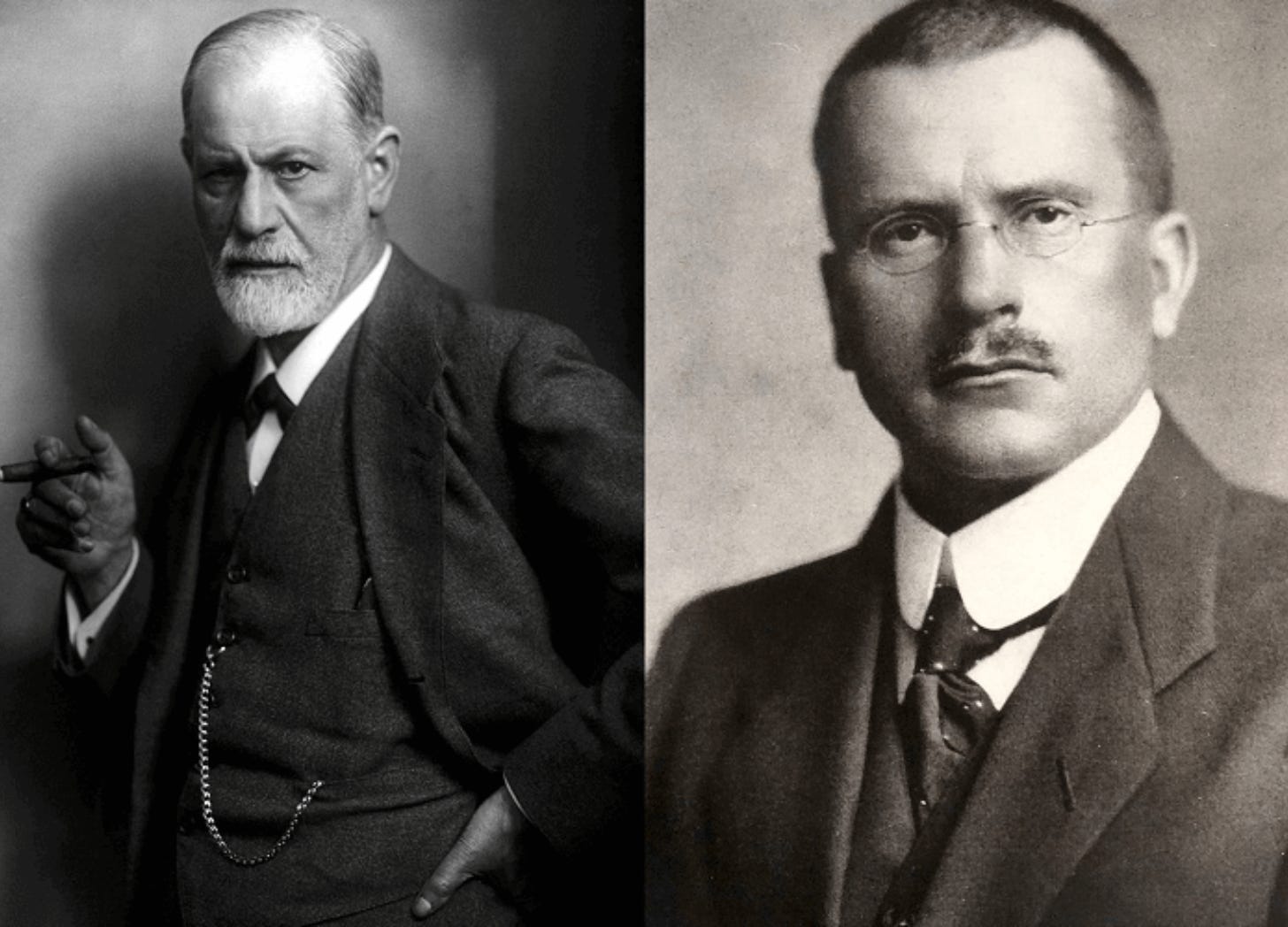All About Psychology Newsletter
Aloneness vs Loneliness. Freud Reaches Out to Jung. Obedience to Authority.
A very warm welcome to the latest edition of the All About Psychology newsletter—the official newsletter of All-About-Psychology.com, a website providing comprehensive information and resources for psychology students and educators since 2008.
Aloneness vs Loneliness: Understanding the Psychological Difference
What if being alone isn't the problem—but how we feel about it is?
We often use aloneness and loneliness interchangeably, but psychology draws a powerful line between the two. One can be restorative. The other can quietly erode our well-being.
In this deep dive into emotional and social psychology, I explore:
Why solitude can fuel creativity, clarity, and resilience
How loneliness impacts mental and physical health
What neuroscience reveals about social pain vs. chosen isolation
The role of culture, age, and attachment in shaping our experiences of being alone
Why knowing the difference matters more than ever in a hyperconnected world
This is for anyone who’s ever felt alone in a crowd—or at peace in silence.
Here’s a short video based on the article:
Moments in Psychology:
A fascinating glimpse into the stories that shaped psychology
🕰️ The First Letter Between Freud and Jung
It began with a letter—and sparked one of the most intellectually intense and influential relationships in the history of psychology.
On April 11, 1906, Sigmund Freud sent a short but significant note to Carl Gustav Jung, who was then rising in prominence for his research on word association and the unconscious.
It read:
Dear colleague,
Many thanks for sending me your Diagnostic Association Studies, which in my impatience I had already acquired. Of course your latest paper 'Psychoanalysis and Association Experiments' pleased me most, because in it you argue on the strength of your own experience that everything I have said about the hitherto unexplored fields of our discipline is true. I am confident that you will often be in a position to back me up, but I shall also gladly accept correction.
Yours sincerely, DR FREUD
This letter marked the beginning of a legendary correspondence—spanning over 360 letters—that would shape the early development of psychoanalysis and define the personal and theoretical tensions between two of psychology’s most influential figures.
VISIT 👉 www.all-about-psychology.com/sigmund-freud.html for Freud information and resources.
VISIT 👉 www.all-about-psychology.com/carl_jung.html for Jung information and resources.
Just for fun!
Stay in the know! The All About Psychology newsletter is your go-to source for all things psychology. Subscribe today and instantly receive my bestselling Psychology Student Guide right in your inbox.
Upgrade to a paid subscription and also get the eBook version of my latest book Psychology Q & A: Great Answers to Fascinating Psychology Questions, as well as regular psychology book giveaways and other exclusive benefits. As a paid subscriber, you will also be:
Ensuring that psychology students and educators continue to have completely free access to the most important and influential journal articles ever published in the history of psychology.
Ensuring that psychology students and educators continue to hear from world renowned psychologists and experts.
Ensuring that free quality content and resources for psychology students, educators and the general public, continue to be created on a regular basis.
Psychology Q&A
Someone asked a great question about obedience to authority on the All About Psychology Q&A page.
Why is obedience so powerful even from the most minimal signs of authority (e.g. someone who wears any kind of a uniform)?
Here’s the answer they received:
Obedience is one of the most deeply ingrained behaviors in human psychology, and it doesn’t take much to activate it. Even minimal cues—like a person wearing a white coat, a police uniform, or speaking with confidence—can dramatically shift how we think, feel, and act. Why?
Because we are socially wired to defer to authority—and that wiring runs deep.
Psychologists have long studied this phenomenon. The most famous demonstration comes from Stanley Milgram’s obedience experiments in the 1960s, where participants, under the instruction of a man in a lab coat, delivered what they believed were painful electric shocks to another person. What shocked the world wasn't the severity of the act—but how minimal the authority cue was. The experimenter didn’t yell, threaten, or even raise his voice. He simply looked the part—and that was enough to compel ordinary people to violate their own morals.
So, what’s going on?
🧠 The Psychology Behind Minimal Authority Cues
Evolutionary Programming: Throughout human history, group survival often depended on hierarchies. Deference to leaders helped maintain order, reduce conflict, and coordinate complex tasks. Our ancestors who followed authority likely survived better in tribal settings—and that instinct was passed down.
Cognitive Shortcuts (Heuristics): We rely on mental shortcuts to make sense of the world quickly. One powerful heuristic is: “If someone looks like they’re in charge, they probably know what they’re doing.” Uniforms, titles, and confident posture act as cognitive triggers that bypass deeper thinking and activate compliance.
Symbolic Power: A uniform doesn’t just cover the body—it symbolizes an institution. A police badge represents law and order. A doctor’s coat represents expertise. These symbols invoke social rules, and we’re conditioned to respect or fear them from a very young age.
Diffusion of Responsibility: When we obey authority, we often feel less personally accountable. We think, “I’m just following instructions,” which shifts responsibility away from ourselves and onto the perceived authority figure.
Fear of Consequences: Even subtle authority can carry implied consequences. A person in a uniform might have social, legal, or institutional power—real or imagined. The cost of noncompliance might feel too high, even if it’s just social disapproval.
👁️ The Takeaway
Obedience is a social reflex that can be both helpful and harmful. It allows societies to function smoothly, but it also leaves us vulnerable to manipulation. By becoming more aware of how easily authority influences us—especially when the signals are subtle—we can begin to think more critically and act more intentionally.
In short: sometimes a uniform isn’t just clothing—it’s a key to the human mind.
Related Reading: 👉 Revisiting Milgram’s Shocking Obedience Experiments.
Psychology Q & A is open to everyone and is designed as a space for those with an interest in psychology to both give and receive help. So, if you have a psychology-related question, feel free to ask! And if you believe you can answer any of the questions posted, I encourage you to share your insights. Please note that any content generated by psychology Q & A is provided for informational purposes only. It does not signify that I endorse the material provided or the views expressed. None of the information within psychology Q & A should be considered a substitute for professional psychological, psychiatric or medical advice, diagnosis, or treatment.
Providing free, high-quality information and resources since 2008, All-About-Psychology.Com receives well over a million visits a year and has attracted over a million followers across its social media channels.
If you are looking to supercharge your brand awareness and reach, or promote your course, book, podcast, product or service; I can help.
Visit the All About Psychology Amazon Store to check out an awesome collection of psychology books, gifts and T-shirts.
🌐 Explore More Psychology Content—For Free!
Looking for clear, credible, and comprehensive psychology information?
Visit All-About-Psychology.com—your go-to hub for resources, articles, and expert insights across every major area of psychology.
And don’t forget to connect with the All About Psychology community across social media:
🔹 Facebook – Join over 800,000 psychology enthusiasts
🔹 LinkedIn – Connect with professionals and academics
🔹 LinkedIn Psychology Students Group – A dedicated space for students to share and learn
🔹 Instagram – Visual insights, quotes, and key concepts
🔹 Pinterest – Curated boards on topics across the field
🔹 Bluesky – Our newest platform for psychological conversation
🔹 YouTube – Watch engaging, science-backed videos that bring psychology to life
Whether you’re learning, teaching, researching, or simply curious—you’re always welcome in the All About Psychology community.










Very interesting post !
Great piece, David! This got me thinking about how solitude protects us from the noise of “outlier envy.” I explored this from a different angle—how society elevates rule-breakers and we end up chasing their shadows. It’s what I called the Outlier Paradox. Would love to know if this connects with your work: https://ridingthecurrent.substack.com/p/the-outlier-paradox-why-we-follow